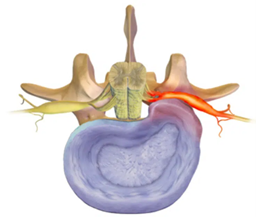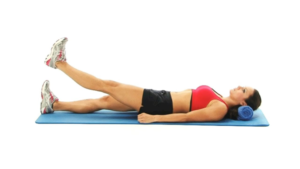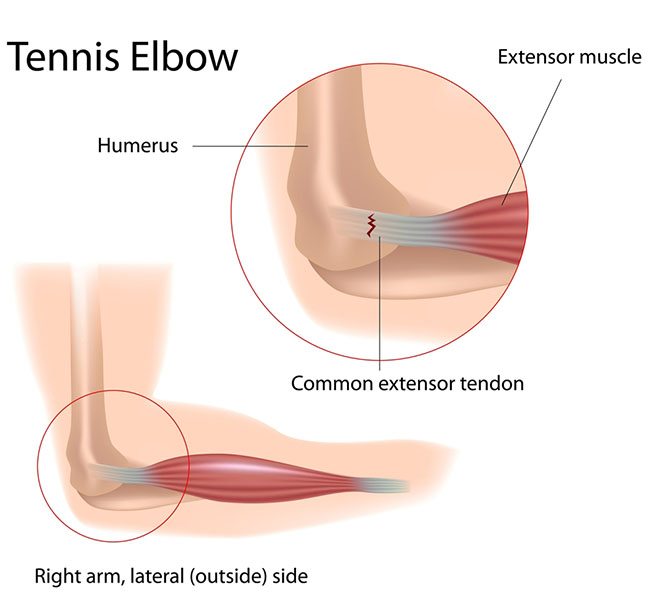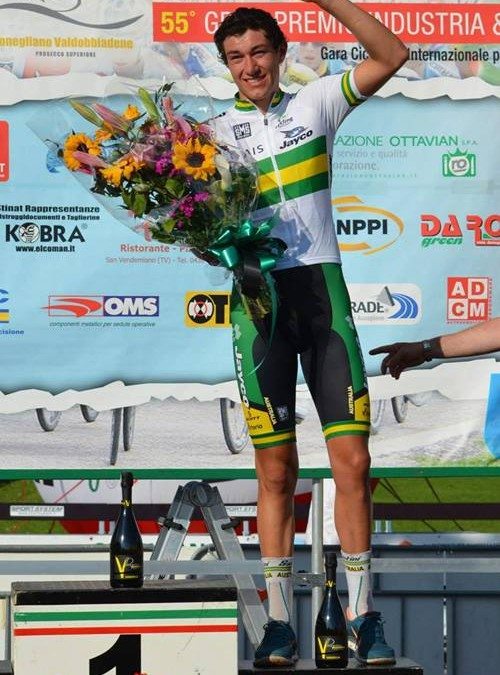Sciatica treatment!
Star Physio are experts in sciatica treatment. We have staff with multiple degrees and even PhDs! Read more about our expert team here!
Understanding disc herniations and sciatica
A disc herniation leading to sciatica can be very painful. Whether we develop pain depends on where the disc herniation is located and the type of disc herniation. Other factors can also influence your pain including stress, poor sleep and your immune system.
Bigger disc herniations doesn’t necessarily cause more pain. A small disc herniation in “the wrong spot” can be as painful as a big herniation.
Sometimes the disc herniation can cause an irritation of the nerve, causing symptoms out in a leg. This is commonly referred to as sciatica.
A compression of the nerve can also cause more severe symptoms, like loss of power and sensation in the foot. Very rarely it may cause Cauda Equina Syndrome, which requires urgent care.

Nerve root impingement and sciatica
Assessment
Many factors that can influence pain, symptoms and severity. It is important that you get a thorough examination from an expert physiotherapist.
Normally an assessment includes testing your back mobility, nerve mobility, reflex and sensation testing and muscle power.
An MRI is not always necessary and may give misleading results. It will usually be requested if there is persistent pain or more severe symptoms. Read more about MRI findings in people with no pain here!

Mobility testing for sciatica.
Sciatica treatment options
Most people with a disc herniation and sciatica improve with conservative treatment.
Conservative Sciatica Treatment:
-
-
Physiotherapy:
- Tailored exercises can help get your muscles working, improve flexibility, and promote overall spinal health.
- Activity Modification: Staying active within comfortable limits is crucial. Avoid prolonged bed rest, as it can exacerbate symptoms and prolong recovery. An expert physiotherapist can show you what movements and positions to avoid and what exercises are the best sciatica treatment.
- Techniques like neurodynamic exercises can be beneficial for patients where the sciatic nerve is more sensitive.
- Other treatments may include manual therapy and joint mobilisation, acupuncture and massage
-
-
Pharmacological Treatments:
-
- Medications can help manage pain and inflammation associated with disc herniations.
- Non-steroidal anti-inflammatory drugs (NSAIDs) and analgesics are commonly used.
- For neuropathic pain, medications like tricyclic antidepressants or anti-seizure drugs may be prescribed
- Occasionally a cortisone injection may be considered.
-
-
Surgical Options:
-
- Surgery is considered when conservative treatments fail to relieve symptoms after a significant period. It is sometimes required if there is severe pain, muscle weakness, or loss of bladder/bowel control.
-
Prognosis
With acute sciatica, the worst pain usually subsides after 2-4 weeks. 50% of people with sciatica will be symptom free after 3 months.
The team at Star Physio can help you to get the best sciatica treatment and exercise programs.
Summary
Disc herniation pain varies and sometimes leads to nerve irritation or compression and sciatica. A thorough assessment with an expert is critical to find the best sciatica treatment for you.
Expert physiotherapy is key, with advice, treatment and exercises to improve mobility and reduce pain. Medication can also help manage pain and inflammation.
Most people improve without surgery! Star Physio can help you get back to life, pain-free. Call today on 64249578 or you can book and appointment with one of our expert staff by clicking the links!

Causes and treatment of ITB syndrome
The term ITBS gets thrown around a lot in the sporting community, but it’s come to be misused as a kind of umbrella term for knee injuries. There are a lot of common misconceptions surrounding ITBS, or iliotibial band syndrome, which can lead to home treatments doing...

11 Signs You Have Tennis Elbow and What to Do About It
If you’ve ever suffered from tennis elbow, you’ll know that the sore, hot pain on the outside of the elbow can be difficult to bear when you’re performing regular, everyday activities like picking things up or typing on a computer. But while the condition is called...

5 Things the Right Bikefit Will do for Serious Cyclists
A good bike fit relies on the person performing the fitting service, and the technology used, to be accurate and precise. Getting the right Bikefit will not only make your ride more comfortable and efficient, but it can help you prevent common cycling injuries while...

The Science (and Art) of Tapering- Star Physio
Tapering for the UWCT! (…and any other event for that matter!) With Brett Buist, Physiotherapist and Exercise Physiologist, Star Physio Tapering is the training period just before an event where your training load is reduced to ensure peak performance. The challenge...
